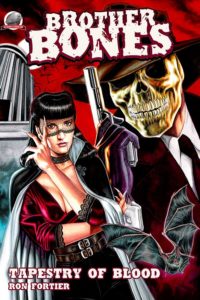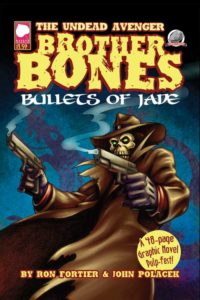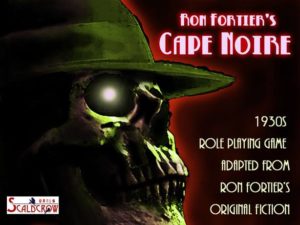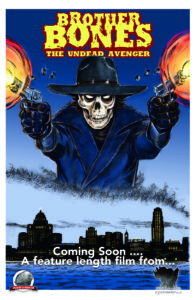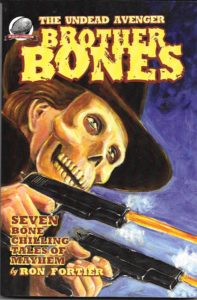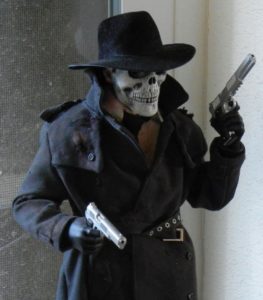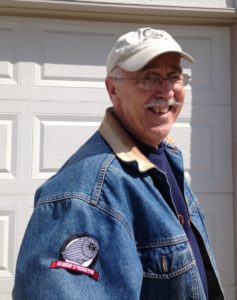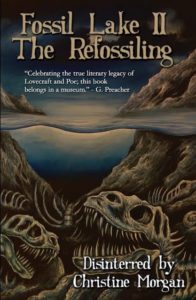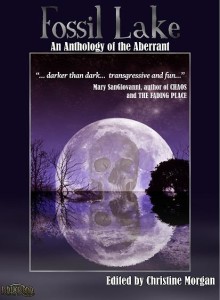I have to admit, I have an affinity for the early science fiction, fantasy, and weird tales that came out in the beginning of the twentieth century. Some of the tales are cringe-worthy these days, especially when viewed from a scientific perspective. Remember, nobody landed on the moon, airplanes were still in the experimental stage, and many people in rural areas had never even seen a car yet. Everything beyond the atmosphere of our pale blue marble was up for speculation, and science fiction authors were more than happy to think of wild new ideas as to what was “out there”.
A good example of the strangeness that was contemplated was Captain Sterner St. Paul Meeks, who wrote a set of early science fiction stories in the pulp magazines that included weird amoeba-like creatures that lived in the “heaviside layer”, a boundary between our atmosphere and outer space. These creatures were chowing down on the tasty rockets the humans kept sending up. Eventually, scientists discovered the truth, and the stories migrated onwards using the new information to write even weirder stories.
Harold Vincent Schoepflin, who thankfully went by the pen name of Harl Vincent, wrote for many of the early 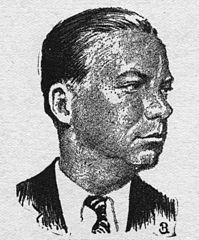 science fiction pulp magazines. He was born in 1893 in chilly Buffalo, New York. Harl was an educated gentleman who worked as a mechanical engineer for Westinghouse, specializing in industrial electrical devices. He used his engineering background to great success with his stories, giving his tales an air of scientific possibility.
science fiction pulp magazines. He was born in 1893 in chilly Buffalo, New York. Harl was an educated gentleman who worked as a mechanical engineer for Westinghouse, specializing in industrial electrical devices. He used his engineering background to great success with his stories, giving his tales an air of scientific possibility.
Harl Vincent’s first sale was to a new pulp magazine called Amazing Stories. Harl read an issue of the magazine, headed by Hugo Gernsback (the namesake of the Hugo awards), and decided he would try to pen a story for fun. To his surprise, his story, The Golden Girl of Munan, was picked up and published in the June 1928 edition. It was the start of a beautiful friendship, and Harl went on to write many stories for Amazing Stories and several other of the speculative fiction pulps. He developed quite a following, and his name appeared often on covers to alert his fans that there was a new Harl Vincent story inside.
As Harl’s genre skills developed, he branched out to other pulps including Argosy All-Story, a highly respected weekly magazine that ran from 1882 to 1978. Most of his longer works were either novellas or serialized short novels, with the exception of his full-sized novel, The Doomsday Planet, that came out in 1966.
During World War II, Harl stopped writing for the pulps and focused on his family and his engineering career. He didn’t get back to writing until he was 73 years old, when he published the aforementioned Doomsday Planet and a short story for the speculative fiction magazine If in 1967.
Before Harl started writing, he had married Ruth Hoff and had a son and a daughter. Unfortunately, he was an avid smoker, and he eventually succumbed to emphysema and pneumonia when he was 75.
Always interested in science fiction, he continued to read the popular pulp magazines until he returned to writing his novel and a short story before passing away. Harl was a staple at the local science fiction conventions in Los Angeles, where he and his wife relocated from the snowy winters of the western New York area. He joined the Count Dracula Society and the Los Angeles Science Fantasy Society, and he attended meetings as often as he could.
As for me, I’ve always enjoyed Harl Vincent’s work. I have a collection of original pulps with his stories in them, and I’ve worked with Villainous Press to bring out some of his forgotten works. Currently in print are Barton’s Island (my personal favorite), The Golden Girl of Munan (which consists of both of his novelettes combined on the lovely Golden Girl), Purple & Gray (which was fascinating in how it foreshadowed the fight between the working class and the rich and powerful elite), and several others. I plan on editing and releasing two books per year until all of his works are once again available.
If you happen to have some old brittle pulps that are not in collectible condition, feel free to contact me. I’m always looking for the original appearances of his stories so I can scan them. Reading the pulps still brings a smile to my face.





